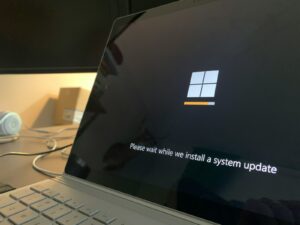SolarWinds Sets Precedent for Software Providers in Support of U.S. Cybersecurity Efforts
A China-linked threat group, UNC5174, has been conducting aggressive cyber campaigns by exploiting security flaws in Connectwise ScreenConnect and F5 BIG-IP software. The group is believed to be a...
More from Podcast StoryMore posts in Podcast Story »
- FCC Votes to Restore Net Neutrality, Reclassifying Broadband as Essential Service
- AI’s Role in the Workplace: Enhancing Productivity Without Displacing Jobs, According to New Study
- Microsoft Urged to Rebuild Trust Amid Security Breaches and Rising Criticism
- FTC Votes to Ban Noncompete Agreements, Predicting $300 Billion Wage Increase Annually
- Apple Cuts Vision Pro Headset Forecast Amid Cooling Demand, Delays Cheaper Model

 Unlock with Patreon
Unlock with Patreon


